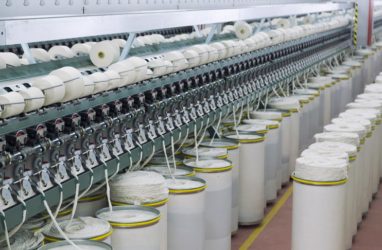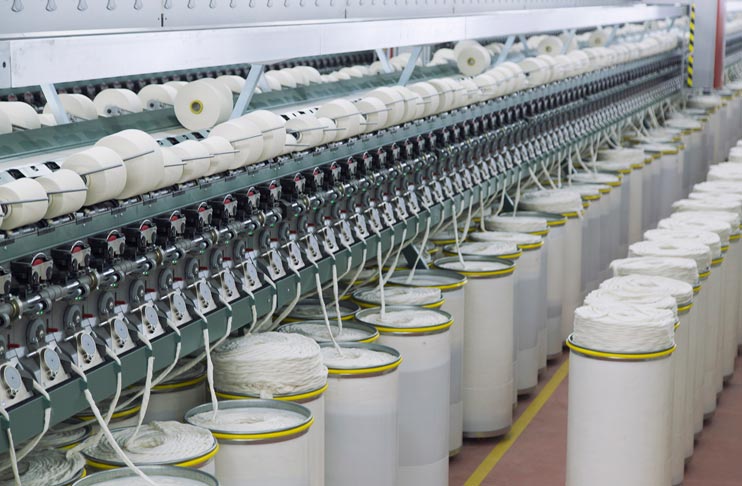One of the most important reasons of foreign trade deficit; imported input deficiency matter can be felt in textile and ready-wear sector very heavily. Burcu Akyürek have evaluated imported input deficiency in textile and ready-wear sector through Denizli example.

One of the reasons of foreign trade deficit which is among the most important structural problems of Turkish economy; the high imported input deficiency in manufacturing. The share of intermediate and investment goods of Turkey’s export has been calculated as 86%. This is a very high number. The reduction of imported input deficiency is said to affect foreing trade balance. But it also affects the added value formed in the country, manufacturing, employment and national income positively.
Assistant Professor of Muğla Sıtkı Koçman University and Master’s Student Burcu Akyürek have evaluated imported input deficiency in textile and ready-wear sector through Denizli example. Presented at the 5th EconAnadolu 2017, Anatolian University International Economics Congress, this field research indicates an important view for the sector-wide as well. 8 textile and ready-wear firms in different scales operating in Denizli, were examined for this study. The total equity of these firms was calculated as 14 billion TL. The average staff number was calculated as 76. The main cost range of these examined firms, on the other hand, are listed thusly; 57,5% raw material, 20% worker payments, 59,3% taxes and 6,3% intermediate goods.
In Denizli, all of the yarn machines, 72,5% of fabric machines are imported
It is seen that the 66% of raw material, 55% of yarn and 30% fiber that the examined firms using in manufacturing is imported. Fabric has been left out in this research. Aside from that, yarn manufacturing, fabric manufacturing, pre-finishing, dying and ready-wear machines have also been evaluated in machine equipment section. In the research, it is found out that averagely 72,5% of fabric manufacturing machines and all the yarn and ready-wear machines are imported.
Turkmenistan, India and Pakistan came into the forefront for yarn manufacturing in Terzioğlu and Akyürek’s study. Among the reasons of entering import use; the fact that it is cheaper compared to the local manufacture is very dominant. While it is stated that local manufacture is efficient and qualified, it is pointed out that the cost of raw material has a high share in total expenses thusly. Firms tend to choose cheaper entering import to have a competitive advantage. Another reason is said to be the inadequacy of cotton manufacturing.
In the research, it is found out that the entering import share is very high in investment goods section. On this industry-specific report based in Denizli textile sector; it is seen that Germany takes the first place as the origin of import input of machine and equipments. Germany which is the most important machine supplier of Turkey is followed by Italy, Russia, Switzerland, and Sweden. The reasons of why import is preferred in technology are mentioned as; absence or inadequacy of local manufacturing in these areas, the fact that imported one is more qualified and after sales service is better.
Import dependency is on the rise
It is determined that imported input use in industry sector of Turkish economy has increased in recent years and continues its tendency rise. It is also defended that the reasons of this dependance should be investigated in sub-sectors base; some solution offers suitable for sectors should be made.
According to the findings of the study; it is understood that import input use is not needed for intermediate goods in this sector. Evaluated as intermediate goods section, for colourant, chemical bleaches and other enterings, it is thought that local manufacturing is enough and more advantageous than imported ones in terms of price and quality. However, the fact that the share of intermediate goods in total expenses is only 6,3% is evaluated as the main factor preventing companies from searching for cheap intermediate goods.
The high share of raw expenses in total costs (57,5) causes cost pressure and minimisation of cost in these types of products. Thusly, it is understood that import entering is preferred for its price advantage even though there is a local quality and efficient manufacturing.
On the result section of the research; it is stated that a detailed and long-term research should be made; for increasing local manufacture volume and quality of investment goods in order to reduce import dependency. Apart from that, since the expected life of investment goods is long, it is defended that raw material group from which faster and more efficient results can be obtained, should be the priority for import input precautions.It is also underlined that of manufacturing volume of raw material in Turkey should be increased. The measurements must be taken for reduction of costs.


